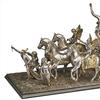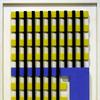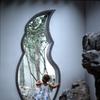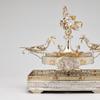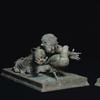
Delight in Nature: Stanley Spencer’s World
https://stanleyspencer.org.uk/
Stanley Spencer Gallery are delighted to present Delight in Nature: Stanley Spencer’s World, opening on 30th of March. The new exhibition will chart the influence the natural world had on Spencer’s development as an artist, from his very early years to the end of his life. Beginning with his tentative drawings done as a boy, the exhibition looks at how landscape and the natural world became an integral part of Spencer’s artistic practice. Later in life, when he was going through a troubled divorce, he complained that his landscapes and still-lifes were mere ‘pot boilers’ (easily saleable works that helped him survive financially). This exhibition reveals however, that his study of nature was not only a meditative tonic, but also informed his figurative work, becoming an intrinsic part of his visionary narratives.
Most of the works on display centre around the village of Cookham, Spencer’s home, which was at the core of his artistic and spiritual inspiration (although works from Northern Ireland, Macedonia and Glasgow also feature). These works came to play an important part in his artistic narrative and expressions of Cookham as an earthly paradise. The exhibition will explore themes that elevate Spencer’s work beyond the mere representational: his love of dirt or the discarded; the use of boundaries to suggest other metaphysical worlds; the conflict between the sacred and the profane; as well as the notion of redemption through nature and place.
The title is taken from a review of Spencer’s work in The Scotsman, which compared him with the Pre-Raphaelites, who had ‘the same prodigious delight in all the facts of nature for their own sake. He loves to paint nettles and grasses leaf by leaf, blade by blade, as they did. He loves it all too much to leave anything out.’
The exhibition will include works from the Gallery’s own collection as well as some stellar loans, including The Dustbin (The Royal Academy of Arts), Bluebells, Cornflowers and Rhododendrons (British Council Collections), Magnolias, The Cultivator, and Cookham Rise: Cottages (all from private collections).
The exhibition’s curator, Amanda Bradley said: ‘This exhibition demonstrates how the natural world and the everyday were unified with Spencer’s spiritual vision: how rubbish became something beautiful; suburban spaces were considered places for mysterious, heavenly happenings; and how the sacred co-existed with the profane. Spencer’s paintings of the natural world were not just a financial necessity, but were a form of personal redemption.’
- Contact:
- Esmee Wright
- esmee@albanyartscommunications.com
- 02078798895



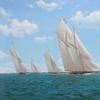





100x100_c.jpg)
